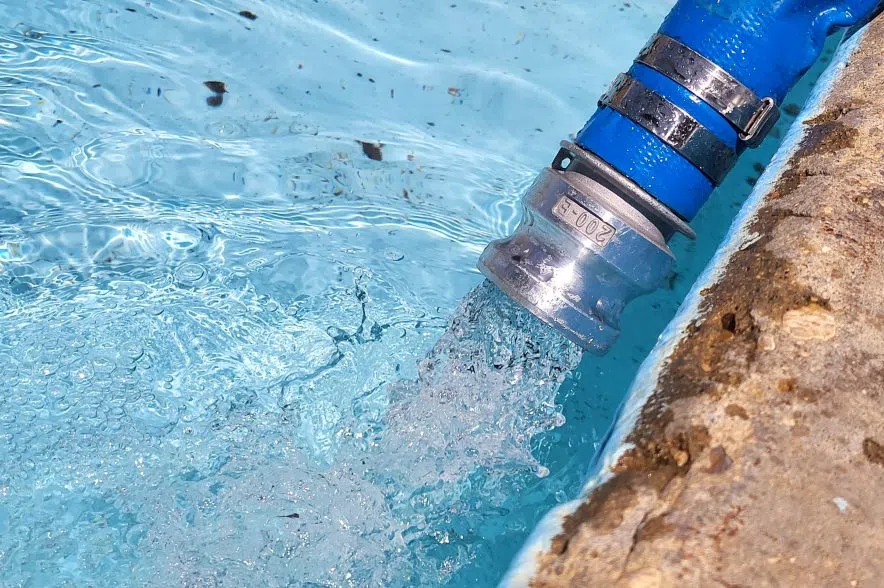The City of Regina and the City of Moose Jaw have asked residents and businesses to conserve their water voluntarily over the next few days.
Both cities will be participating to help conserve water while upgrades at the Buffalo Pound Water Treatment Plant are underway.
Read More:
- Premier Moe, SPSA declare provincial State of Emergency
- Regina police say woman’s 1996 death was a homicide, closing cold case
- Thursday wildfire update: 4,300 currently evacuated in Sask.
Deputy City Manager Kurtis Doney spoke to media on Thursday about voluntary water conservation.
“We’ve asked residents in the past, when we get into emergency situations, to reduce water, and we know residents understand how important water is (to) ensure that we reduce it voluntarily so we don’t have to move to mandatory restrictions,” he said.
Doney said the Buffalo Pound Water Plant is experiencing challenges in meeting Regina’s demand right now.
“We have our water wells working (but) the amount that they can provide is not consistent, so it’s going up and down depending on their processes and as they work through different challenges,” he said.
Doney wasn’t able to give an exact reduction target that the city is seeking and said the city activated its emergency wells on Tuesday.
“In a normal operation, we’d have about two days of storage for water usage in the city, and we have about one day of storage right now,” Doney said.
“Buffalo Pound is still providing us water, and so we’re stable right now, but we’re asking residents to conserve water.”
Doney said normal daily water consumption for Regina this time of year is around 100 megalitres per day. During peak summer time, he said it goes as high as 110 or 120 megalitres per day, and down to about 80 per day during winter.
The water plant said it should be fixed and back to normal by the end of the weekend.
In the meantime, residents and businesses are encouraged to do the following:
- Refrain from watering lawns, except for newly laid sod.
- Delay filling hot tubs, pools and ponds.
- Avoid washing vehicles except when required for health and safety.
- Turn off taps as much as possible while showering or washing.
- Showering instead of bathing, if possible
- Only run the washing machine and dishwasher when they are full.
Regina will use its emergency water wells to try to maintain service levels. In the Queen City’s news release, it warns that there may be some discoloration, however, the wells contain safe drinking water.
Doney said the emergency wells provide about 25-30 per cent of what the city needs.
Both cities will not have outdoor pools filled, spray pads will be turned off, street sweeping will cease and cars will only be washed if it’s a health and safety issue.











